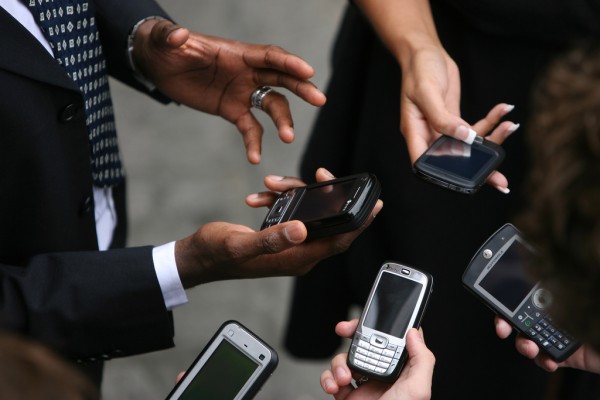It’s time to dump your smartphone… For a “dumb phone”
05/01/2017 / By Bridgette Wilcox

Even as the tech industry churns out new smartphones at lightning speed, the “dumb phone” seems to be making a strong comeback. What is now considered an ancient artifact among many young people continues to be relevant today, particularly among some of the world’s movers and shakers. At the same time, with nostalgia high among the early millennials who cling to everything they remember from their childhood including those clunky Nokias, there is definitely still a market for non-smartphones. Besides, there may be legitimate health reasons to go back to basics.
The dangers of smartphones
When it comes to smartphones, the appeal is easy to understand. These devices revolutionize the basic communication functions of a phone, with apps that make it easier for people to get in touch with each other no matter where they are. Smartphones also undeniably make life convenient and fun — from traffic and navigation apps, to advanced camera features, to built-in mp3 players. A lot of health-related apps also allow one to monitor their health with great detail.
Still, those who have decided to forego smartphones may be on to something. For all their exciting convenience, smartphones have also had effects that are not-so-desirable. According to an article on Telegraph.co.uk, researchers have found that due to smartphone use, the attention span of the average human has fallen to just eight seconds, making it less than that of a goldfish.
Smartphones are also linked to poor sleep. In a study published on PLOS, researchers studied over 600 participants and found that those with a longer average screen time had a shorter, less-efficient sleep. According to the study, being exposed to blue light from smartphone screens suppresses melatonin production. Melatonin is responsible for regulating sleep, and can even protect against breast cancer, heart disease, and aging.
Another health-related problem associated with smartphones is bad posture and, in more severe cases, permanent spine damage. An article on TheGuardian.com mentioned a study done by surgeon Kenneth Hansraj, who found that looking down on one’s phone caused stress on the cervical spine. Increased time on smartphones increased the time that the neck is put under this stress.
Finding the balance
A story on BBC.com named business magnate Warren Buffett and Blackstone Group CEO Stephen Schwartzman as some of the billionaires who remain indifferent to smartphones. One might attribute their preference to their age — but other well-known analog users prove that even those well within the smartphone target market demographic have managed to eschew the high-tech devices. Among them is Shutterstock Senior Manager Danny Groner, who said in the same BBC.com article that he does not need to add more hours to the 14 hours he already spends in front of a screen for work. Even Brian Acton and Jan Koum, founders of the popular smartphone messaging app WhatsApp, have been spotted using old feature phones, as reported on QZ.com.
The health risks that come with using smartphones build the case for switching to a basic feature phone. However, as deeply entrenched as the world is in tech, it may not be possible for everyone to go analog.
If dumping your smartphone altogether is not practical for you (for instance, you are required to use it for work), there are many ways to at least control your smartphone use. Having smartphone-free zones in your life (at home, for instance) is a great way to ensure you get some offline, off screen time. Turning off notifications or putting your phone in airplane mode when you enter these areas can help stifle your impulse to check your smartphone.
Having a schedule for smartphone use can also help greatly. Giving yourself a maximum number of hours of mobile screen time a day may help you value your time both on your smartphone and off of it.
Keep up to date with the latest health and tech developments when you listen to the Natural News Radio.
Sources include:
BBC.com
QZ.com
Telegraph.co.uk
Journals.PLOS.org
TheGuardian.com
Tagged Under: smartphone, smartphone addiction, technology addiction


















